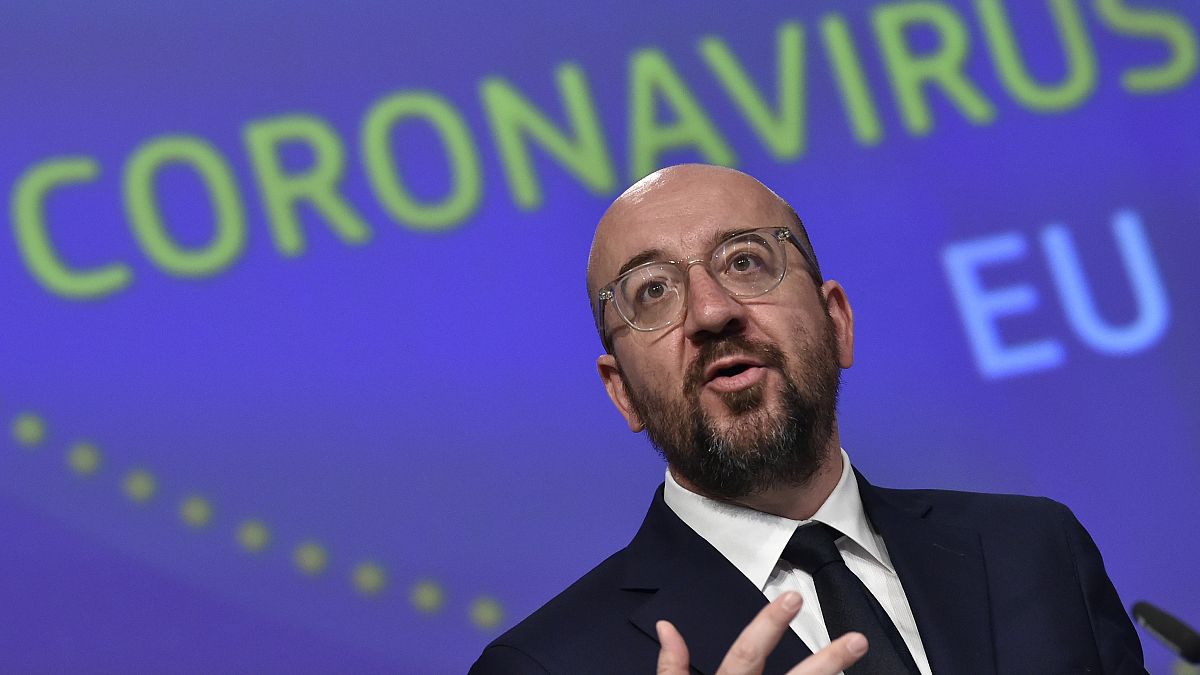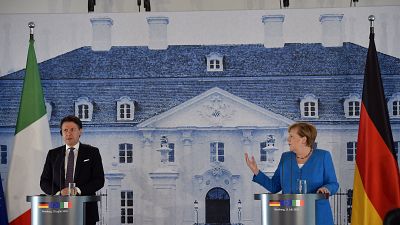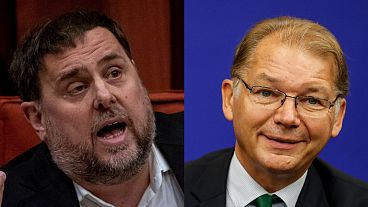Europe remains divided on the issue. On one side Germany, France, Italy and Spain, who back the plan, and four nations who don’t, the so-called "frugal four": Austria, The Netherlands, Sweden and Denmark.
European leaders are no closer to agreeing on a COVID-19 recovery package.
On the table is an ambitious plan of shared debt totalling €750bn, mostly through loans to help out those hardest hit by the coronavirus pandemic.
But Europe is divided on the issue.
On one side, the EU's four biggest economies — Germany, France, Italy and Spain — who back the European Commission's plan and four nations who don’t, the so-called "frugal four": Austria, The Netherlands, Sweden and Denmark.
Leaders of EU countries had a virtual meeting on Friday but there was no breakthrough. They plan to get together again in July.
The discussions were “positive” with them agreeing that the “severity of this crisis justifies an ambitious common response", said Ursula von der Leyen, president of the European Commission. Many leaders agreed that the EU needed an agreement soon.
"We are at the beginning [of the economic crisis] not at the end," said von der Leyen adding that EU leaders want to "prevent the widening of the divergences between member states".
EU Council President Charles Michel added that they will try to "accelerate the negotiations to have an efficient meeting in July".
There continue to be disagreements on a number of details in the recovery plan.
“The ratio of grants and loans it is not in our favour and we also need a conditionality," said Austrian MEP Angelika Winzig.
"How can I explain to an Austrian entrepreneur whose company was closed as long as a Spanish company and his Spanish colleague gets more money in form of grants and perhaps the Austrian gets nothing, and for him, it is the same situation?"
“I hate to borrow money, that is not sustainable, that is not in the interests of the next generation," Manfred Weber, president of the European Parliament's largest political group, the European People's Party, tells us.
But he asks, what is the alternative?
"In the Netherlands and Austria, all over Europe they are currently creating debt, they are going to the banks and borrowing money, that is what everyone is doing currently. Why? Because that is the only chance now to stabilise our economy, to create a perspective for the young generation to not risk a lost decade for the European economy, for the European Union as a whole.”
For some in Brussels, the question over financing the recovery is an existential crisis for the EU.
“This is a matter of survival for the European Union and people need to understand that," said MEP Philippe Lamberts. He says the Netherlands needs to realise that the prosperity of the country depends on the European market.
"Without the European market there is no Dutch economy,” he said.
Few are expecting a breakthrough at this latest summit, it might not happen this side of the summer break.
But if Europe’s economy is to take off again, leaders will need to find a compromise and fast.
Stay with Euronews on Friday 19 June to get the latest from the crunch talks starting from 10 am CEST.
Your view | Is the EU moving fast enough to agree a COVID-19 recovery fund? Let us know in the comments, below



